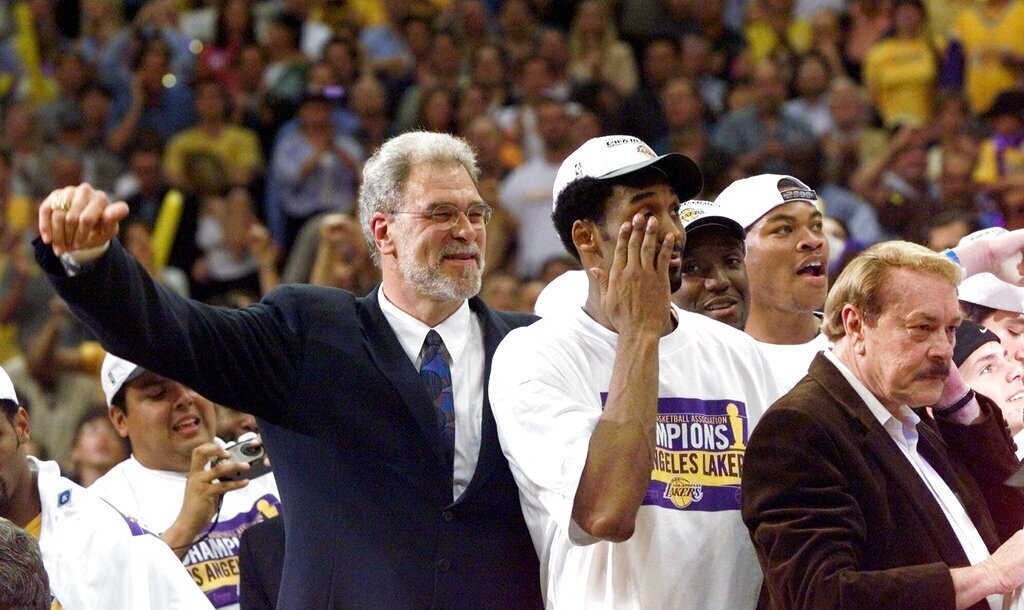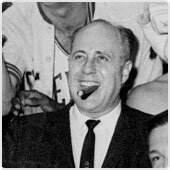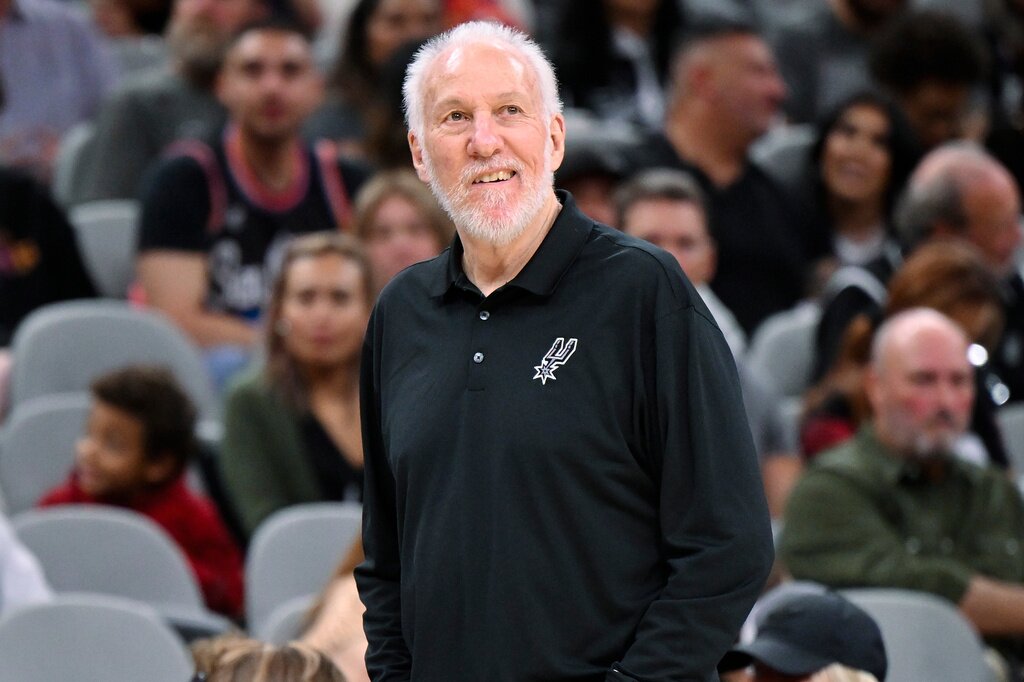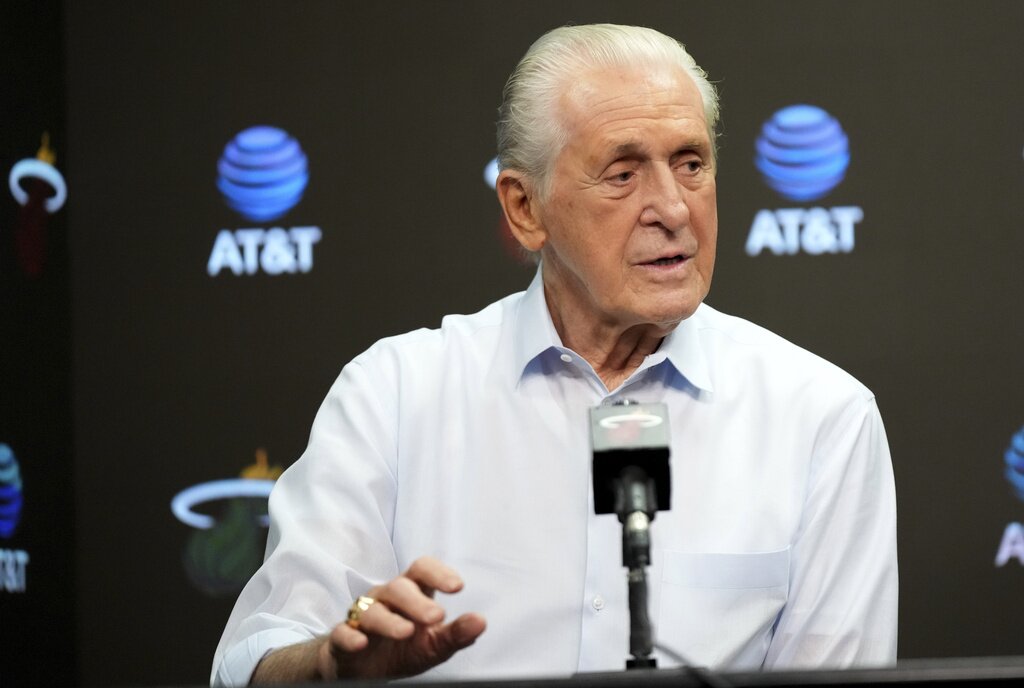Best NBA Coaches of All-Time, Ranked
Disclosure: At GamblingSites.com, our mission is to connect you with the best gambling sites and informational resources available. If you click one of the links on our site, we may earn a commission payment at no extra charge to you.

The best NBA coaches of all-time did far more than run plays or manage rotations. They built identities, developed players, and created systems that held up under the pressure of long seasons and postseason adjustments.
Great coaches earn trust, understand personnel, and consistently elevate their teams. This ranking evaluates titles, influence, adaptability, and the long-term impact each coach had on how the NBA operates today.
1. Phil Jackson

- Years Coached (NBA): 1989 to 2011
- Teams: Chicago Bulls, Los Angeles Lakers
- Championships: 11
- Coach of the Year Awards: 1
Phil Jackson ranks first among the best NBA coaches ever because his teams consistently reached a level of execution that turned talent into recurring titles.
His triangle offense produced efficient, high-assist basketball that emphasized spacing, timing, and decision-making. Under Jackson, the Bulls posted three seasons with 65 or more wins, and his Lakers delivered three straight Finals appearances twice. His teams went 11–0 in Finals series, which remains the best mark of any coach with at least five appearances.
Jackson excelled in handling the demands of superstar cores. His calm leadership style allowed Michael Jordan, Kobe Bryant, Scottie Pippen, and Shaquille O’Neal to thrive without burning out their teams emotionally. He managed conflict, reinforced structure, and aligned rosters around shared priorities.
The combination of tactical structure and interpersonal skill is what separates Jackson from every other coach. Eleven titles in 20 full seasons is a level of sustained postseason success unmatched in league history.
2. Red Auerbach

- Years Coached (NBA): 1946 to 1966
- Teams: Washington Capitols, Tri-Cities Blackhawks, Boston Celtics
- Championships: 9
- Coach of the Year Awards: 1
Red Auerbach ranks second among the top NBA coaches of all-time because he helped define how an NBA franchise is built, coached, and maintained.
He turned the Celtics into the league’s first powerhouse by prioritizing pace, teamwork, and defensive discipline. During his run, Boston led the NBA in defensive rating multiple seasons and posted eight straight championships from 1959 to 1966, the longest title stretch in American professional sports.
Auerbach valued fit over flash. He drafted or acquired players based on how they contributed to a clear philosophy of fast breaks, unselfish offense, and interior defense. His ability to identify talent and integrate it into a system gave the Celtics the league’s deepest and most balanced roster year after year.
He finishes just behind Jackson because he transitioned to an executive role near the end of Boston’s reign and coached in a smaller league with fewer opponents. But his impact on the early NBA remains enormous. Nearly every modern coaching tree reflects principles he introduced.
3. Gregg Popovich

- Years Coached (NBA): 1996 to present
- Teams: San Antonio Spurs
- Championships: 5
- Coach of the Year Awards: 3
Gregg Popovich ranks third for building the most consistent franchise of the past 25 years.
Under his leadership, the Spurs recorded 22 straight winning seasons and 18 seasons with 50 or more victories. Popovich coached five champions spaced across three different eras, demonstrating an ability to shift philosophies as the league evolved.
He began with a defense-first approach built around Tim Duncan and David Robinson. He then pivoted to an international-influenced, ball-moving offense that ranked top three in assist rate during the Spurs’ final title runs. Popovich’s teams always emphasized spacing, anticipation, and structured decision-making, but he adjusted tempos and schemes to match personnel.
Popovich is also widely regarded as one of the most respected player developers in league history. Late draft picks and overlooked role players frequently evolved into high-impact contributors under his guidance. His blend of tactical discipline, adaptability, and personal integrity solidifies his place among the best NBA coaches ever.
4. Pat Riley

- Years Coached (NBA): 1981 to 2008
- Teams: Los Angeles Lakers, New York Knicks, Miami Heat
- Championships: 5
- Coach of the Year Awards: 3
Pat Riley lands at fourth because he built winning environments across three franchises with noticeably different identities.
With the Lakers, his teams averaged more than 114 points per game during the Showtime era and posted four top-three offensive finishes. In New York, he created a rugged, strong defensive structure that ranked top five in defensive efficiency for three straight seasons. In Miami, he combined defensive toughness with efficient half-court execution to add another championship as a head coach.
Riley’s strength was clarity. His teams always understood their goals, roles, and standards. He built accountability into every practice and game plan, which allowed high-pressure teams to stay aligned. His ability to shift from a fast-paced system to a grinding, defensive approach illustrates a rare level of coaching versatility.
He ranks behind the top three NBA coaches because his dynastic footprint as a head coach is shorter and he spent large portions of his career in executive roles. Still, his impact on culture, preparation, and identity is one of the strongest the league has seen.
5. Larry Brown

- Years Coached (NBA/ABA): 1970s to 2010s
- Notable NBA Teams: Nuggets, Nets, Spurs, Clippers, Pacers, 76ers, Pistons, Knicks, Bobcats
- Championships (NBA): 1
- Coach of the Year Awards: 1
Larry Brown finishes fifth among the top NBA coaches because he could take flawed rosters and turn them into cohesive, competitive teams faster than almost any coach in league history.
His 2001 76ers finished first in defensive efficiency and reached the Finals with one All-Star, and his 2004 Pistons held opponents to a league-low 84 points per game in the postseason while capturing the title.
Brown focused on fundamentals and structure. His teams rarely beat themselves and usually performed well in half-court situations. He emphasized strong help defense, quick ball movement, and precise execution on both ends.
While his demanding style sometimes led to short tenures, the results were consistently strong. Nearly every franchise he coached improved significantly within his first two seasons.
He ranks below the top four because he never stayed with one team long enough to build a dynasty and won only one championship. But as a pure teacher and motivator, he belongs on any list of the best NBA coaches of all-time.
Honorable Mentions:
These honorable mentions represent a range of coaching strengths. Jerry Sloan built continuity that few franchises have ever matched, using a structured offensive system that kept Utah in contention for two decades.
Steve Kerr modernized Golden State with a spacing and movement-based attack that produced historic offensive efficiency. Chuck Daly unified a roster known for intensity and physicality and turned it into an organized defensive force capable of neutralizing elite scorers.
Lenny Wilkens’ longevity and adaptability helped him accumulate one of the highest win totals in league history. Erik Spoelstra illustrates the modern approach to coaching, using analytics, creativity, and tactical flexibility to compete at a high level regardless of roster composition.
Together, they highlight the depth of coaching excellence beyond the top tier. If you’re interested in more NBA rankings, check out our list of the best centers of all time.
Ranking the Best NBA Coaches Ever
The best NBA coaches of all-time shaped the league through strategy, culture, and consistent postseason success.
Phil Jackson mastered star-driven teams, Red Auerbach built the first dynasty, Gregg Popovich set the modern standard for adaptability, Pat Riley succeeded in dramatically different environments, and Larry Brown elevated nearly every roster he touched.
Their achievements and influence reach far beyond wins and losses and continue to define coaching standards today. If you want to follow the sport more closely or bet on upcoming matchups, check out our guide to basketball betting.
Subscribe now and get instant access to:
- A sports bonus worth up to $1,250
- Free weekly picks and betting tips
- Cash back on your wagers
Plus, up to $10,000 in bonuses and 200 free spins to use on blackjack, slots, and your other favorite casino games.
 80%
80% 75%
75%
